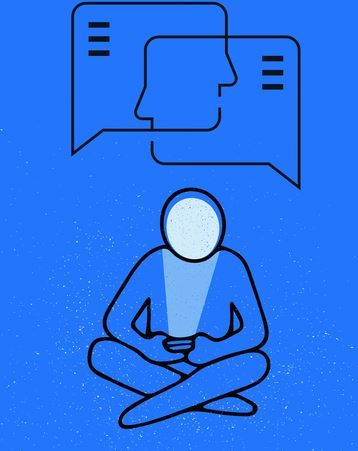News
Article
Understanding the Effects of Pharmacotherapy Through Passive Data Collection
Author(s):
An expert discusses the potential of smartphones as treatment measurement tools at the 2024 ASCP Annual Meeting.
peshkova_AdobeStock

CONFERENCE REPORTER
What are the benefits of using smartphones as treatment measurements? Ellen Frank, PhD, spoke on a panel of experts who discussed this in the context of modafinil/armodafinil as a treatment for bipolar disorder targeting cognition, depression, and sleep circadian rhythm at the 2024 American Society of Clinical Psychopharmacology (ASCP) Annual Meeting. Frank is a distinguished professor emeritus in the Department of Psychiatry at the University of Pittsburgh School of Medicine and chief scientific officer at Health Rhythms Inc.
In her individual presentation, titled “How best to understand sleep/wake and circadian factors in the context of modafinil treatment of bipolar disorder,”1 Frank discussed the results of a recent pilot study suggesting that commercial smartphones could play a crucial role in monitoring the effects of modafinil, a wake-promoting drug that is approved by the US Food & Drug Administration for managing excessive sleepiness in conditions like shift work disorder and narcolepsy,2 on patients with bipolar disorder.1
According to Frank, understanding the effects of pharmacologic treatments on bipolar disorder has been challenging due to the limitations of traditional assessment methods. Self-reports and clinician assessments, although useful, often lack objectivity and continuous monitoring capabilities. Wearable devices and in-home assessments, though more sophisticated, face significant compliance issues, resulting in poor data quality.1
However, smartphones, with their ubiquity and intimacy, provide objective, continuous data that enhance understanding of pharmacologic treatment impacts.1 “When we think about using digital assessment, we can think about continuous visibility into our patients’ lives in their real environments,” Frank said. “And guess what? It is not subjective. It is completely objective, and the process is essentially nothing.”
The study Frank discussed, conducted by Health Rhythms, investigated the feasibility of using smartphones to gather data on sleep/wake patterns and circadian rhythms among patients undergoing treatment with modafinil. By passively collecting data 24/7, smartphones can track changes in anergia—lack of energy—which is particularly pertinent during depressive states in bipolar disorder, according to Frank.1
Health Rhythms has developed methods to use digital data from smartphones to predict patient responses to treatment and likelihood of trial completion. The study also explored how passive sensing can objectively characterize patients’ circadian types (morning or evening preferences), detect shifts in these patterns, and identify changes in walking rate and other behaviors that could signal therapeutic effects or adverse effects of modafinil/R-modafinil.1
Frank shared that the results showed that smartphones successfully enabled continuous, passive collection of objective data, overcoming compliance issues associated with traditional and wearable assessments. Digital monitoring also provided insights into patients’ circadian types and behavioral changes, such as walking rate, which, according to Frank, could help identify therapeutic targets or adverse effects of modafinil. And the data collected during patient screening could predict which patients were likely to complete the trial and respond positively to the treatment.1
Based on these results, Frank recommended the initiation of a fully powered clinical trial to further investigate the effects of modafinil on bipolar disorder, leveraging the continuous, objective data from smartphone sensors.1
Frank concluded that, “This inexpensive, non-intrusive, essentially effortless approach to measuring key parameters of bipolar disorder has multiple advantages over other potential sources of obtaining similar information, including being associated with high levels of complete data collection and providing another way of monitoring the clinical status of patients.”
Frank was joined on this panel by Mark A. Frye, MD, and Katherine E. Burdick, PhD. Frye is a consultant in the Department of Psychiatry & Psychology and a professor of psychiatry at Mayo Clinic College of Medicine. Burdick is Jonathan F. Borus, MD, Distinguished Chair in Psychiatry and vice chair for research in the Department of Psychiatry at Brigham and Women’s Hospital, and a professor at Harvard Medical School.
In the overall panel presentation, Frank, Frye, and Burdick reviewed the methodological limitations associated with developing modafinil/armodafinil for bipolar depression and discussed cognitive impairment and circadian rhythm issues in bipolar disorder as targets for modafinil/armodafinil.
Follow the Psychiatric Times® coverage of the 2024 ASCP Annual Meeting, and stay up-to-date on news related to research on promising new interventions and developments in the treatment of a wide variety of psychiatric disorders, at psychiatrictimes.com.
Note: This article was prepared with the assistance of ChatGPT.
References
1. Frye M, Burdick K, Frank E. ~Revisiting modafinial / armodafinil in bipolar disorder targeting cognition, depression, and sleep circadian rhythm. Panel presentation. 2024 American Society of Clinical Psychopharmacology Annual Meeting. May 28, 2024.
2. Monderer R, Thorpy MJ. Modafinil/armodafinil in the treatment of excessive daytime sleepiness. In: Thorpy MJ, Billiard M, Eds. Sleepiness: Causes, Consequences and Treatment. Cambridge University Press; 2011.
Newsletter
Receive trusted psychiatric news, expert analysis, and clinical insights — subscribe today to support your practice and your patients.






